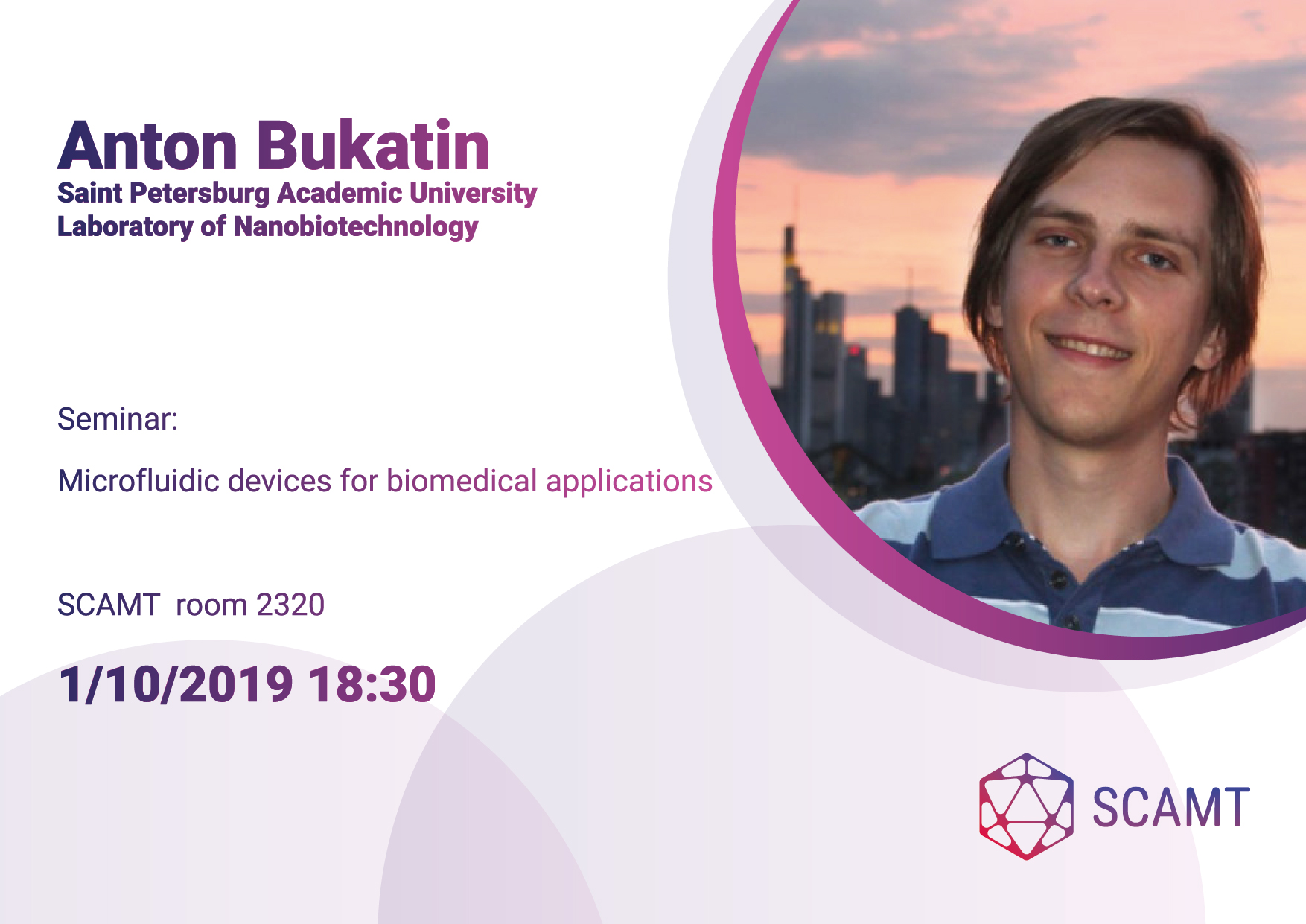01/10/2019 Microfluidic devices for biomedical applications by Anton Bukatin - a senior researcher in the Nanobiotechnology Lab at St. Petersburg Academic University RAS.
Abstract:
Nowadays biological labs, pharma companies and clinics require new sensitive, high throughput and cost effective instruments for drug development and early diagnostics. Microfluidic or «Lab-on-a-Chip» devices are a very promising tool to significantly improve investigations in these areas. They provide a capability to create reproducible and highly controlled experimental conditions, decrease reagents consumption, improve throughput and enhance detection sensitivity. Key components of such devices are microfluidic chips that are made from silicon, glass or different kinds of polymers and include microchannels, reaction chambers, integrated microelectrodes and other micro and nanostructures with functional coatings.
In the talk several aspects of designing and making microfluidic devices for biomedical applications will be described. The first type of the devices is for long term cultivation and investigation of cancer cell or neurons in special microstructures, which define their positions and guide their growth. The second one is for encapsulation cells or biomolecules into water-in-oil or water-in-oil-in-water droplets (microreactors) for high throughput screening of drug activities or searching for heterogeneities in cell populations. Another application of microfluidic devices that will be described is simulation of microenvironment for cells and modeling natural processes such as navigation of sperm cells during fertilization.
Biography
Anton Bukatin received his Bachelor degrees in physics from the St. Petersburg State Polytechnikal University, St. Petersburg, Russia, Master and Ph.D degrees in physics and mathematics from St. Petersburg Academic University and Institute for Analytical Instrumentations RAS, in St. Petersburg, in 2010 and 2013, respectively. In 2009 he joint Institute for analytical instrumentations RAS as an engeneer and later on in 2011 he joined the Nanobiotechnology Lab of at St. Petersburg Academic University RAS as a junior researcher. In 2015-2017 he was a senior researcher at Siberian Federal University, Krasnoyarsk, Russia. In 2014-2018 he was a visiting senior researcher at the University of Warwick, UK. Currently, he is a senior researcher in the Nanobiotechnology Lab at St. Petersburg Academic University RAS. His research interests include development of new microfluidic technologies and devices for detection of oncomarkers, high throughput cell analysis in droplets and investigating microswimmers behavior in microfluidic environment.
